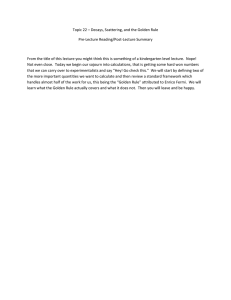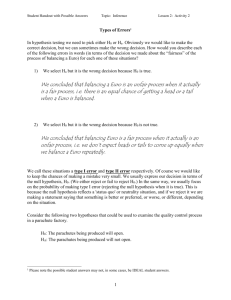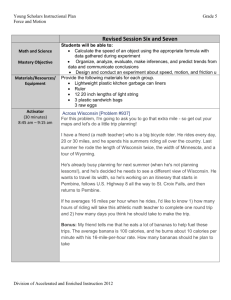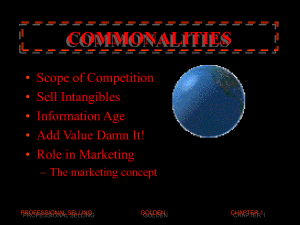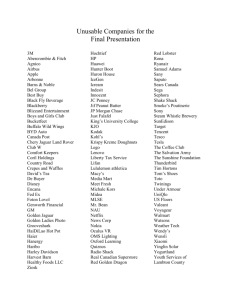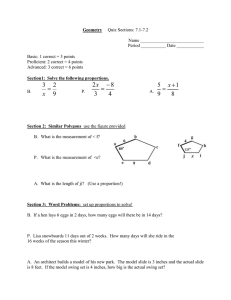GOLDEN PARACHUTES RESEARCH SPOTLIGHT
advertisement
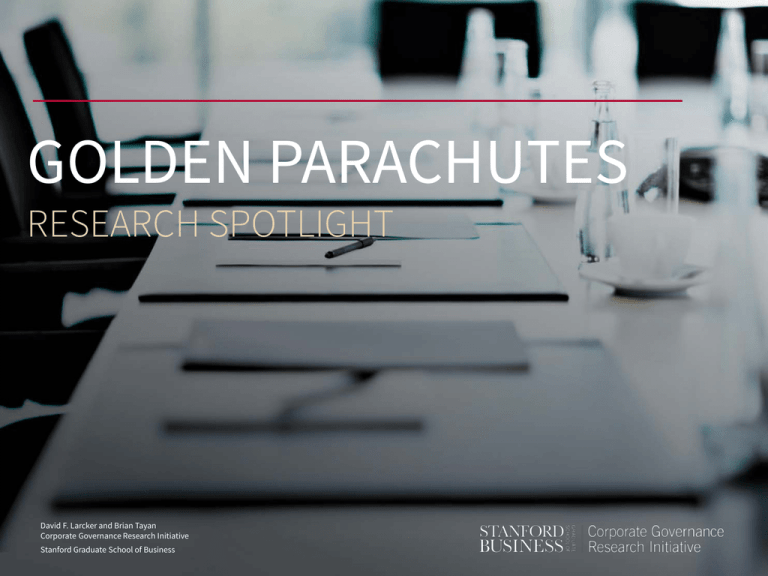
GOLDEN PARACHUTES RESEARCH SPOTLIGHT David F. Larcker and Brian Tayan Corporate Governance Research Initiative Stanford Graduate School of Business KEY CONCEPTS • Golden parachute: Compensation paid upon a change in control. • Potential benefits: – Provides “insurance” to CEO. – Encourages the sale of a company. – Discourages entrenchment. • Potential drawbacks: – Not tied to performance. – Not tied to takeover premium. – Transfers wealth to CEO. • Golden parachutes encourage merger activity and are generally value increasing. SHAREHOLDERS LIKE GOLDEN PARACHUTES • Lambert and Larcker (1985) examine the stock market reaction to the adoption of a change-in-control provision. • Sample: 61 companies, 1975-1982. • Find that shareholders react positively to golden parachutes. • Reaction is most favorable among companies likely to be a takeover target (a priori). • Conclusion: shareholders react favorably to golden parachutes. GOLDEN PARACHUTES ENCOURAGE MERGER ACTIVITY • Machlin, Choe, and Miles (1993) examine the relation between change-incontrol provisions and deal activity. • Sample: 119 firms with golden parachutes, 1976-1984. • Use matched pairs to compare to similar firms without golden parachutes. • Find that firms with golden parachutes receive more offers on average in the four years following adoption (2.87 vs. 1.32 in the control group). • They also receive higher takeover premiums (43.7 percent vs. 39.1 percent). • Conclusion: golden parachutes increase the likelihood of an acquisition. THE IMPACT ON TAKEOVER PREMIUMS IS UNCLEAR • Lefanowicz, Robinson, and Smith (2000) study the relation between golden parachutes and stock price returns during a merger. • Sample: 306 completed acquisitions, 1980-1995. • Measure abnormal stock price returns from 20 days prior to deal announcement through 5 days following the last bid. • Find no association between golden parachutes and stock price returns during this period. • Conclusion: golden parachutes do not influence CEO incentives to negotiate better deal terms. THE IMPACT ON TAKEOVER PREMIUMS IS UNCLEAR • Fich, Tran, and Walkling (2013) also examine the relation between golden parachutes and deal activity. – Sample: 851 acquisitions, 1999-2007. – Adjust the value of the parachute payment by the expected pay loss the CEO incurs if merger is completed (“parachute importance”). – Find that parachute importance is: • Positively correlated with likelihood of deal completion. • Negatively associated with acquisition premium. – Conclusion: golden parachutes motivate managers to close deals but not necessarily to negotiate the highest premiums. “Conditional on a merger, target shareholders are worse off than they would have been in a deal without a parachute for the target CEO, but they are unconditionally better off, because with a parachute a merger is more likely to occur.” GOLDEN PARACHUTES MIGHT ENTRENCH MANAGEMENT • Bebchuk, Cohen, and Wang (2014) study the impact of golden parachutes on shareholder returns over longer periods. • Sample: 10,856 announced transactions (9,277 target firms), 1990-2007. • Find that golden parachutes: – Increase the likelihood of receiving an offer and being acquired. – Are associated with higher takeover premiums. – Are negatively associated with abnormal returns over 2-3 year adoption period. • Conclusion: golden parachutes might entrench management. “This effect could be due to golden parachutes weakening the force of the market for control and thereby increasing managerial slack.” UNSCHEDULED OPTIONS SIMILAR TO GOLDEN PARACHUTES • Fich, Cai, and Tran (2011) consider the practice of granting unscheduled stock options to CEOs during merger negotiations. • Sample: 920 acquisition bids, 1999-2007. • Find that unscheduled stock option grants are: • Inversely related to golden parachute payments. • Positively related to amount of pay CEO stands to lose if deal is completed. • Unscheduled stock option grants are also: • Positively associated with likelihood that deal closes (12% more likely). • Negatively associated with takeover premiums (4% lower). • Conclusion: unscheduled options act as an “alternative” golden parachute. CONCLUSION • Golden parachutes generally encourage deal activity. • Shareholders react positively to their adoption. • It is not clear whether golden parachutes provide managers incentive to maximize the premium received in a deal (the evidence is mixed). • The board of directors should evaluate the size and structure of change-incontrol provisions within the broader context of managerial compensation and incentives. BIBLIOGRAPHY Richard A. Lambert and David F. Larcker. Golden Parachutes, Executive Decision Making, and Shareholder Wealth. 1985. Journal Of Accounting And Economics. Judith C. Machlin, Hyuk Choe, and James A. Miles. The Effects of Golden Parachutes on Takeover Activity. 1993. Journal of Law and Economics. Craig E. Lefanowicz, John R. Robinson, and Reed Smith. Golden Parachutes and Managerial Incentives in Corporate Acquisitions: Evidence from the 1980s and 1990s. 2000. Journal of Corporate Finance. Eliezer M. Fich, Anh L. Tran, and Ralph A. Walkling. On the Importance of Golden Parachutes. 2013. Journal of Financial and Quantitative Analysis. Lucian Bebchuk, Alma Cohen, Charles C.Y. Wang. Golden Parachutes and the Wealth of Shareholders. 2014. Journal of Corporate Finance. Eliezer M. Fich, Jie Cai, and Anh L. Tran. Stock Option Grants to Target CEOs During Private Merger Negotiations. 2011. Journal of Financial Economics.
